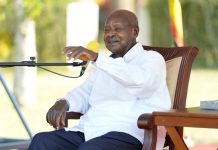By Victoire Fikiri Gakuru
Africa-Press – Uganda. In Kawempe North, the sun is rising at the back of a queue. A woman in a faded gomesi holds fingertips around a soft, well-worn 2000-shilling note. It is enough for sugar. It is enough for a taxi ride. Today, it might be enough for a promise.
The loudhailers come on, the men with clipboards drift between doorways, and cars idle with their engines low outside the station. By noon, there are accusations.
By nightfall, every camp claims victory. Days later, lawyers exchange affidavits and officials count again.
Kawempe North stops being a rumor and becomes a record: a by-election tainted by allegations of bribery, a heavy security response, and procedural errors, then a judge’s order to do it all over again: one constituency, but a clear preview of the national mood.
If by-elections are a window on the future, party primaries tell you how the show will be staged. The ruling party’s contests in July were noisy and crowded, followed by a predictable rush of petitions on bribery and tampered tallies. In the capital, lawmakers debated for hours over the creeping sale of politics itself. The signal to candidates was unmistakable. Cash was not a scandal to be avoided but a cost of doing business.
The presidential picture is also coming into focus. The incumbent has made it clear that he will run again in early 2026, and the ruling party will soon formalize his nomination. That brings the full weight of incumbency: name recognition in every district, dense local patronage networks, and a campaign machine that knows every parish road.
What, then, does Kawempe North tell us about the year ahead?
First, the price of a vote remains distressingly low, and the risk of being punished for buying one is even lower. Monitors raised alarms, observers took detailed notes, and the bench stepped in. But the incentives to cheat did not change. Unless enforcement is swift, public, and consistent, the envelope will decide tight races before the policy debate even begins.
Second, the presidency is the ruling party’s to lose, but margins will turn on turnout and anger. Once the flag bearer is endorsed, many wounds from the primaries will be bandaged, and resources will be marshaled to the districts that matter most.
Even so, urban constituencies that witnessed the chaos in Kawempe North are unlikely to forget. If the campaign veers towards intimidation or spectacle, city voters will answer with higher opposition tallies and uncomfortable headlines.
Third, the next parliament will tilt yellow but will not become a solid wall. The primaries set in motion a cascade effect. Aggrieved losers will run as independents, independents will fragment fields, and a few local campaigns will ride a moral wind by documenting cash handouts in real time. There will be surprises. There will not be a wave.
Fourth, the opposition’s most challenging problem is arithmetic. Uganda elects MPs by simple plurality. In swing constituencies, two challengers splitting the same pool of voters hands victory to the incumbent party. The map is already shifting as PFF positions itself as the main rival to NUP in several battlegrounds. The smart question is no longer who has the loudest rally. It is whether PFF and NUP can strike seat-by-seat truces in the places where one must stand down for the other to win. With cooperation, the seat map changes overnight. Without it, the arithmetic does the work for the ruling party.
Finally, economics will infuse every conversation. Government speeches will highlight growth and new investments. Households will point to boda fares, the price of maize, and school fees. That is precisely where a small note makes the most significant difference. The campaign that links everyday costs to unearned privilege and that pairs this message with a single respected local candidate will steal close constituencies. The campaign that offers a national sermon while fielding two candidates in a three-way race will not.
A sober forecast follows. Barring a shock, the incumbent retains the presidency in 2026, lifted by the advantages of office and by fractured challengers. The ruling party secures a parliamentary plurality, with independents filling the gaps and tilting in different directions. Manifestos will not determine the outcome. It will turn on whether state institutions make cheating more expensive and whether opposition blocs make cooperation less expensive.
There are practical ways to raise the price of a stolen vote. Prosecutors can move from warnings to visible cases, with reruns where evidence justifies them and with party penalties that stick. Opposition leaders can negotiate a short, disciplined list of swing constituencies where only one banner flies and the other quietly stands aside. Civic groups can station parish-level trackers who record handouts, unusual vehicle traffic, and polling-station tricks, then move those findings quickly into courtrooms and newsrooms before the narrative hardens.
Kawempe North showed how democracy is discounted. It is the sound of early morning engines, the whisper in a doorway, the quick fold of a small banknote, and the legal paperwork that tries to catch up after the fact. If the 2026 vote is to be worth more than two thousand shillings, Uganda’s guardians and would-be reformers will have to make it so.
The author is a Congolese writer who works to promote peace and justice throughout the Great Lakes region and East Africa.
Source: Nilepost News
For More News And Analysis About Uganda Follow Africa-Press






